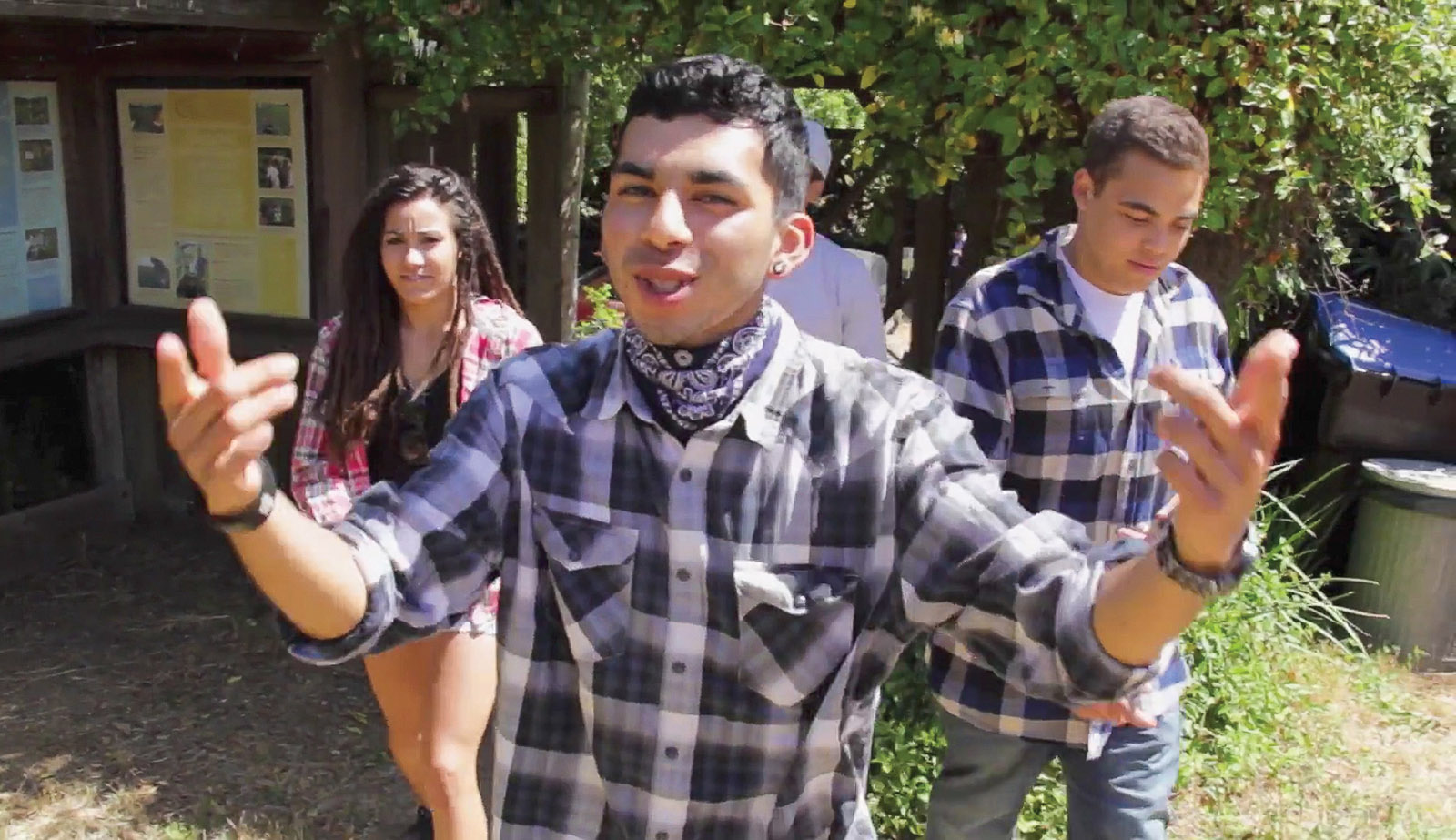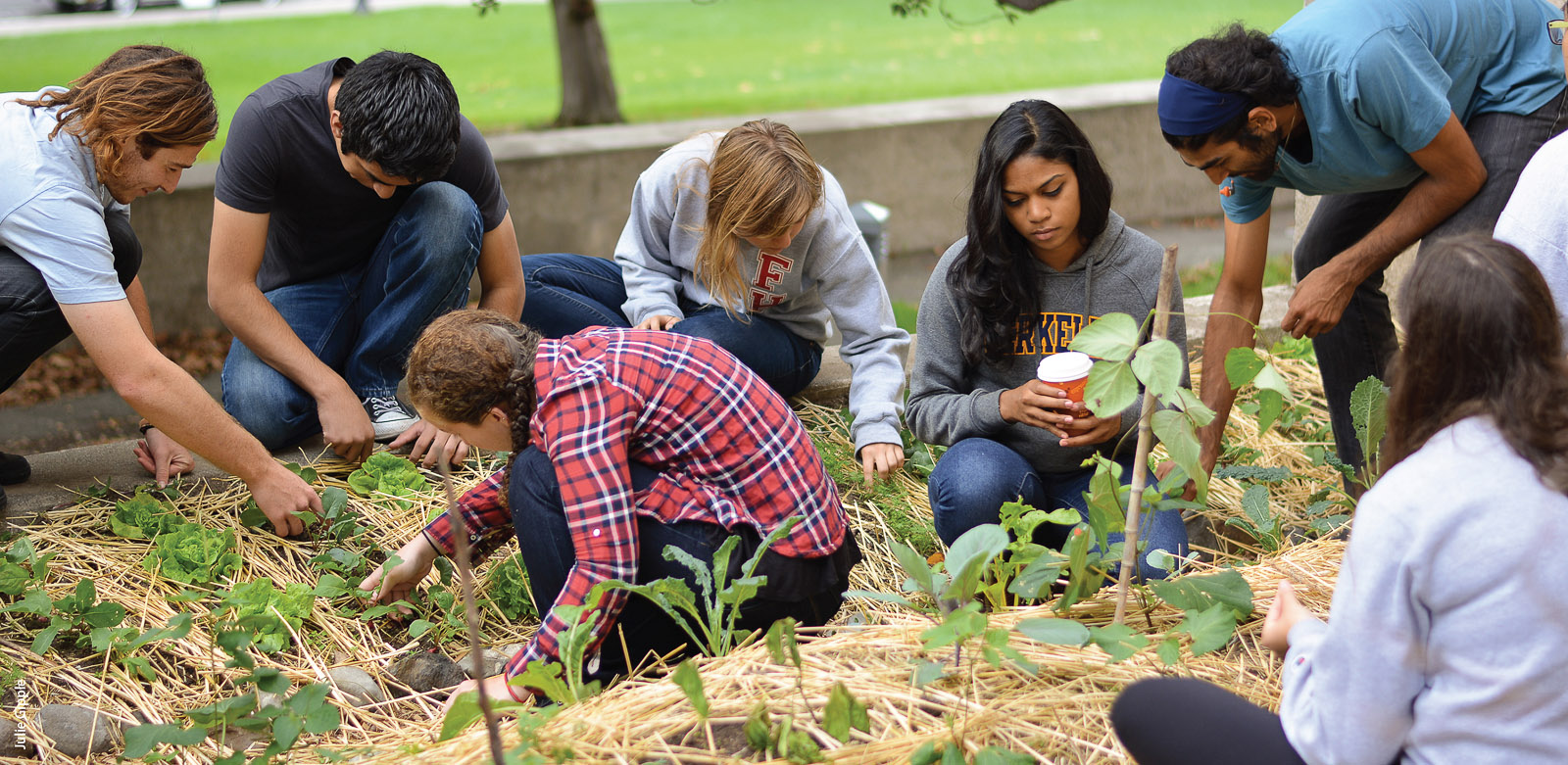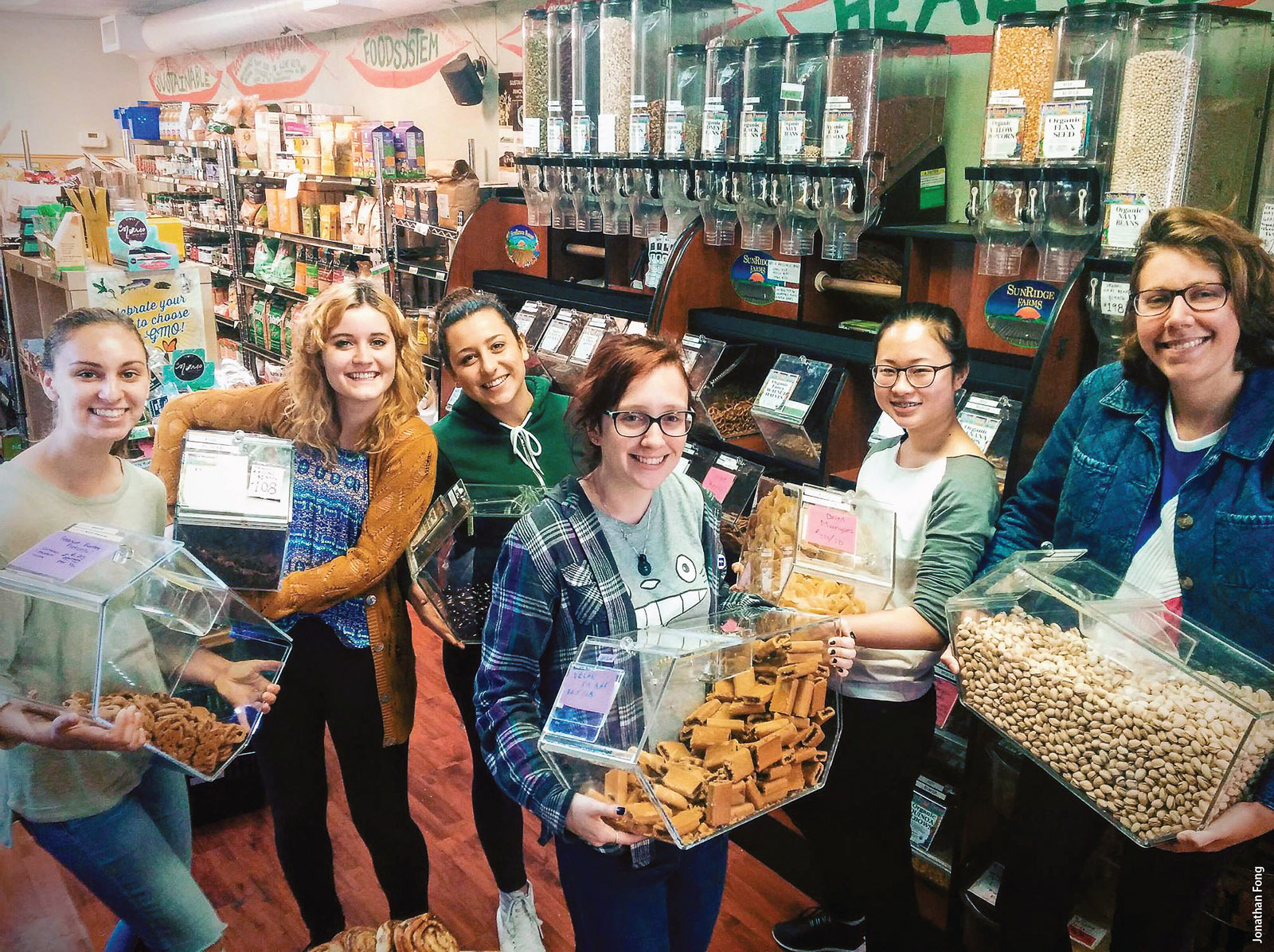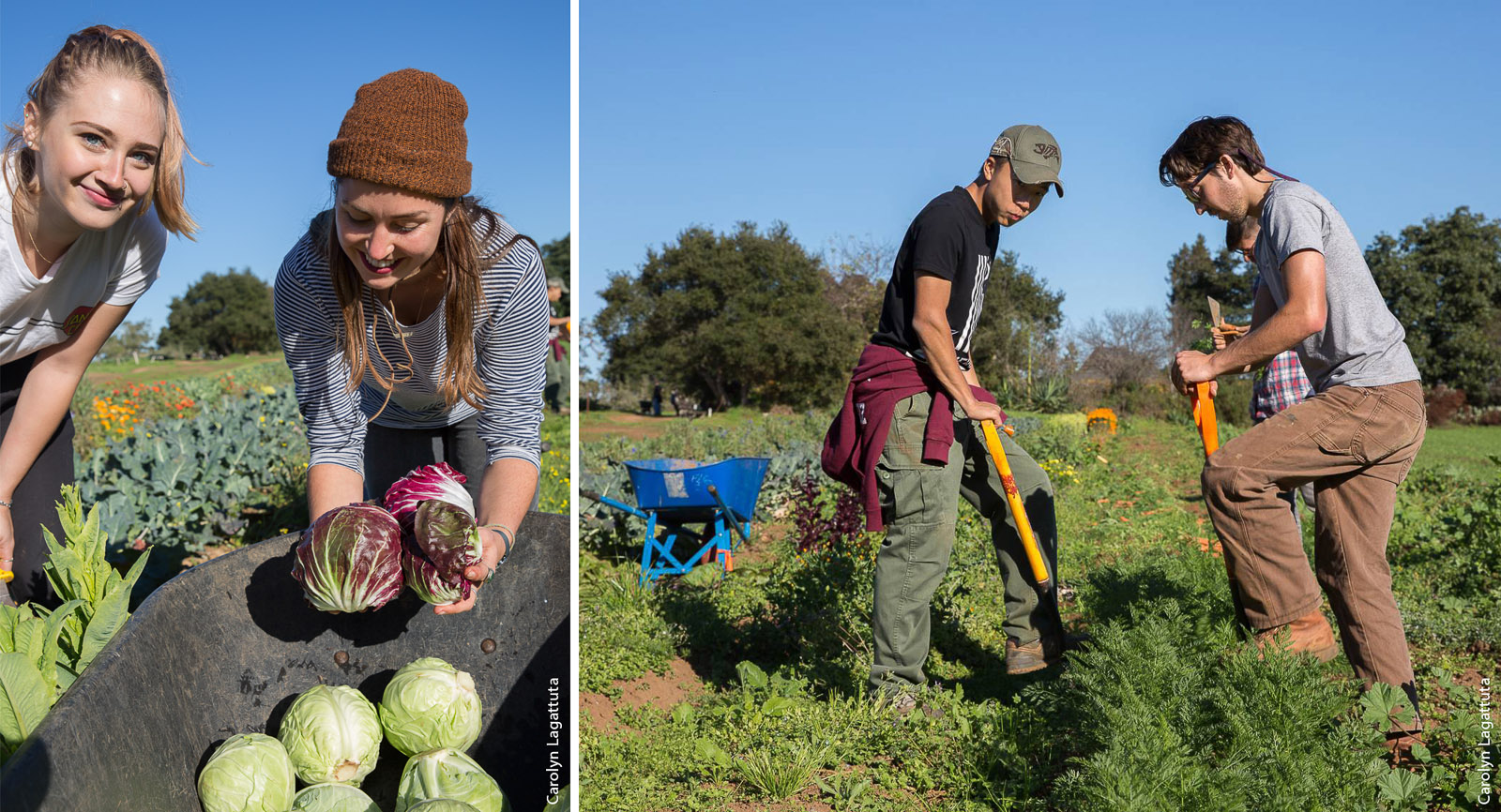All Issues
Increasing experiential learning opportunities in food and agriculture
Publication Information
California Agriculture 71(3):106-108. https://doi.org/10.3733/ca.2017a0036
Published online September 13, 2017
PDF | Citation | Permissions
NALT Keywords
Summary
A new report from the Global Food Initiative identifies hands-on learning opportunities for UC students.
Full text
“Seeing what you're learning and learning it by doing. Tell ‘em we got dreams and goals we're pursuing. Tell ‘em we're choosing to make a change right here.”— Can UC music video, produced by UC Santa Cruz Students including David Robles (center), Aubrey Wilson (right) and Alyssa Billys (left)
Can UC, a hip-hop music video made by students at UC Santa Cruz, is one of 12 UC student videos supported by the GFI subcommittee on experiential learning in food and agriculture. Against a backdrop of the UCSC farm and Chadwick garden, it presents students' visions and solidarity efforts to bring about a more just and sustainable food system, through their education. And it shows the enthusiasm for and value of experiential learning (i.e., learning that is hands-on, reflective and action producing).
The subcommittee set out to identify and increase experiential learning opportunities in food and agriculture for UC students and make them more accessible, while sharing lessons learned and best practices. The project was highly collaborative across UC campuses, coordinated by co-leaders from UC Berkeley (Berkeley Food Institute), UC Davis (Agriculture Sustainability Institute), UC Santa Cruz (Center for Agroecology and Food Systems) and UC Cooperative Extension.
As a first step, the subcommittee inventoried the existing opportunities. The directory, compiled in fall 2015 from a survey of all UC campuses, details over 200 courses with experiential learning components, such as labs or field classes. It also identifies more than 150 food and agriculture programs, including, for example, the UC Davis Honey and Pollination Center and the Food Law Society at UC Los Angeles, along with numerous internship programs and student-led groups. The directory is a living document on the web, for use by students, educators, researchers, administrators and others interested in learning about and using experiential learning to teach agriculture and food systems.
The subcommittee identified over 200 UC courses with experiential learning components, such as this UC Berkeley course on campus landscape ecology.
Drawing from the survey data, the subcommittee produced a report, From the Ground Up: Experiential Learning in Food and Agriculture Systems at the University of California. It includes a pedagogical framing of experiential learning approaches, a summary of lessons learned about effective practices, challenges and needs, and 12 case studies. The case studies show a wide range of content areas and program type, from the UC Merced Campus Garden, where solar-related projects have made the garden almost self-sustaining; to UC San Diego's Taste Buds partnership with an executive chef and nutritionist who present hands-on educational sessions for the community; and the UCLA's Swipe Out Hunger project, which started as a student club in 2009, with students donating unused food points, or swipes, from their meal plans to students and community members in need, and is now a national nonprofit. Best practices are identified in each case study. At the top of the list of challenges the projects face is unstable funding.
Student managers at the Berkeley Student Food Collective, a nonprofit, student-led grocery store that offers experiential learning internship programs and employment.
As a second step, the subcommittee invited student teams to submit proposals to create videos highlighting food and agriculture experiential learning opportunities on their campuses. Video recording equipment was provided to each team, and 12 videos were completed. The videos are a kaleidoscope of innovation, community empowerment and actions toward environmental and food justice. For example, students at UC Riverside, where almost one in three students lacks the money to acquire adequate food, produced Food Insecurity on an undocumented student's struggle to gain access to educational opportunities and resources, including food; students at UC Berkeley produced a video on their Compost Alliance, an innovative program that reduced food waste, through a partnership between students and staff.
To facilitate discussion and exchange of information, the subcommittee took a third step and held half-day workshops last spring at UC Davis and UCLA, to bring the experiential learning community together from the 10 campuses. In July, it co-organized the Sustainable Agriculture Education Association national conference at UC Santa Cruz, which was attended by almost 400 people.
Next on the agenda, with new funding from the Global Food Initiative, is strengthening the UC garden-based programs by contributing funding and increasing collaboration and knowledge exchange among those programs. One of the outcomes will be best practices toolkits online, accessible to campuses worldwide.
Student staff members and interns harvest produce at the UC Santa Cruz Center for Agroecology and Sustainable Food Systems farm.
The subcommittee is working alongside a dynamic, rapidly expanding student movement. “It's remarkable how many students have become engaged in experiential learning — through UC classes, student-led groups and programs such as campus gardens and farms,” says subcommittee co-leader Ann Thrupp, executive director of the UC Berkeley Food Institute. For example, there are now at least 19 food and agriculture student-led groups at UC Berkeley — double the number when the subcommittee's survey was completed. “The food movement is mushrooming at Berkeley and on all campuses,” says Thrupp.
—Editors







